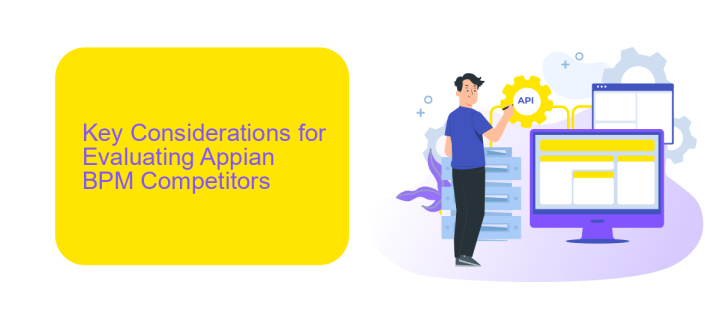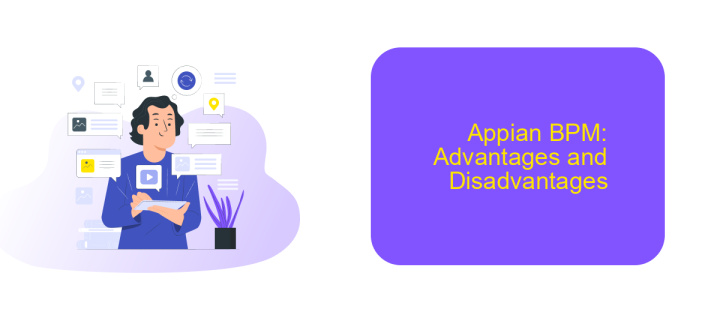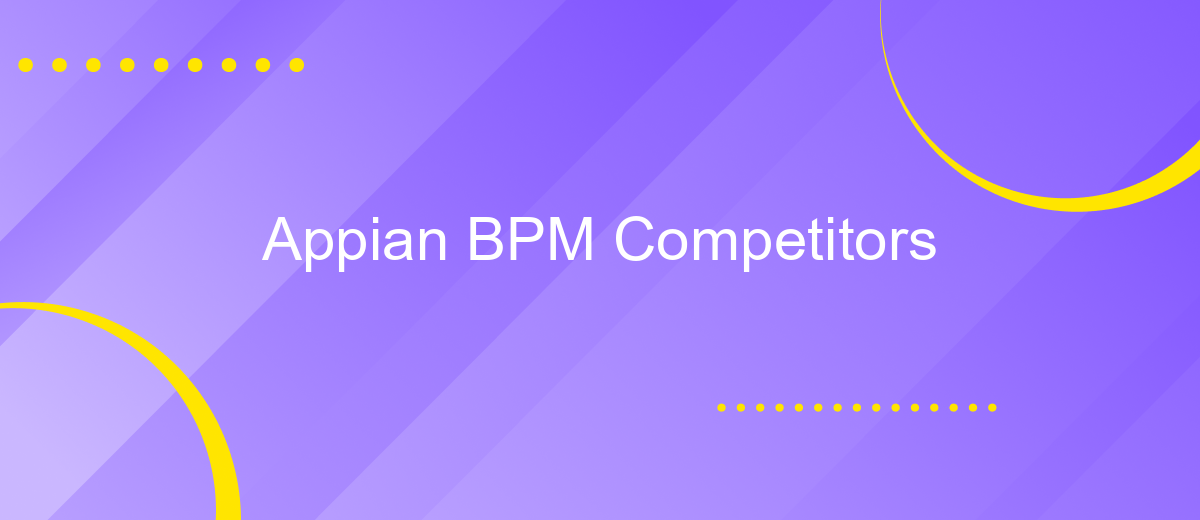Appian BPM Competitors
In the rapidly evolving landscape of Business Process Management (BPM), Appian stands out as a leading platform known for its robust capabilities. However, it's essential to explore other significant players in the market that offer competitive alternatives. This article delves into the top Appian BPM competitors, examining their unique features, strengths, and how they stack up against Appian in delivering effective BPM solutions.
Appian BPM Competitors: Overview
Appian BPM is a powerful tool for business process management, but it faces competition from several other platforms that offer unique features and capabilities. Understanding these competitors can help businesses make informed decisions about which BPM solution best meets their needs.
- Pega BPM: Known for its robust case management and dynamic workflow capabilities.
- IBM BPM: Offers strong integration with other IBM products and a comprehensive suite of tools for process optimization.
- Bizagi: Provides a user-friendly interface and strong process modeling features, making it accessible for non-technical users.
- ApiX-Drive: Facilitates seamless integration between various apps and services, enhancing automation and efficiency.
- Oracle BPM: Integrates well with Oracle's suite of enterprise applications and offers extensive analytics capabilities.
Each of these competitors brings something unique to the table, whether it's advanced integration options, user-friendly interfaces, or robust analytics. For businesses looking to enhance their BPM capabilities, considering these alternatives alongside Appian can provide a broader perspective on the available tools and their potential benefits.
Key Considerations for Evaluating Appian BPM Competitors

When evaluating Appian BPM competitors, it's crucial to consider the scalability and flexibility of the platform. Ensure that the BPM solution can grow with your business and adapt to changing requirements. Look for features such as customizable workflows, user-friendly interfaces, and robust reporting capabilities. Additionally, assess the platform's ability to integrate with existing systems and third-party applications seamlessly. Integration capabilities are vital for maintaining data consistency and operational efficiency.
Another important consideration is the level of support and resources available from the vendor. Check for comprehensive documentation, training programs, and responsive customer support. For instance, services like ApiX-Drive can simplify integration processes, enabling smooth data flow between different applications. Evaluate the cost structure and ensure it aligns with your budget while providing a good return on investment. Finally, seek out user reviews and case studies to understand the real-world performance and reliability of the BPM solution.
Top 7 Appian BPM Competitors: A Detailed Comparison

In the ever-evolving landscape of Business Process Management (BPM), Appian stands out, but several competitors offer robust alternatives. Here's a detailed comparison of the top 7 Appian BPM competitors:
- Pega: Known for its powerful AI capabilities and dynamic case management, Pega is a leading choice for complex BPM requirements.
- IBM BPM: Offers extensive integration options and a user-friendly interface, making it suitable for large enterprises.
- Bizagi: Provides a balance of affordability and functionality, with strong process automation features.
- Oracle BPM: Integrates seamlessly with other Oracle products, offering comprehensive process management solutions.
- Bonita BPM: Open-source and highly customizable, Bonita BPM is ideal for businesses needing flexible BPM solutions.
- ApiX-Drive: Specializes in easy integration of various applications, streamlining workflows and enhancing productivity.
- Signavio: Focuses on collaborative process design and continuous improvement, making it a favorite for agile teams.
Each of these competitors brings unique strengths to the table, catering to different business needs. Whether you prioritize AI capabilities, integration ease, or customization, there's a BPM solution to match your requirements.
Appian BPM: Advantages and Disadvantages

Appian BPM is a powerful business process management tool that offers a range of features for automating and optimizing workflows. Its user-friendly interface and low-code development environment make it accessible for both technical and non-technical users. Appian's robust integration capabilities allow seamless connectivity with various third-party applications, enhancing overall efficiency.
However, like any software, Appian BPM has its limitations. The initial setup and customization can be time-consuming and may require specialized knowledge. Additionally, the cost of the platform can be high, making it less accessible for smaller businesses.
- Advantages:
- User-friendly interface
- Low-code development environment
- Strong integration capabilities
- Disadvantages:
- Time-consuming setup and customization
- High cost
Despite its drawbacks, Appian BPM remains a competitive choice for organizations looking to streamline their processes. For those seeking to simplify integrations, services like ApiX-Drive can be beneficial. ApiX-Drive offers easy-to-use tools for connecting various applications, further enhancing the value of Appian BPM.
Choosing the Best Appian BPM Competitor for Your Business
When selecting the best Appian BPM competitor for your business, it's crucial to assess your specific needs and objectives. Begin by evaluating the core functionalities each BPM platform offers, such as process automation, user-friendly interfaces, and customization capabilities. Consider whether the platform supports seamless integration with your existing systems and tools. For instance, ApiX-Drive is an excellent service for setting up integrations, making it easier to connect various applications without extensive coding.
Next, analyze the scalability and flexibility of the BPM solutions. Your business may grow, and you need a platform that can adapt to increasing demands. Additionally, review customer support and training resources provided by the vendor to ensure your team can efficiently utilize the platform. Finally, compare pricing models and total cost of ownership to find a solution that offers the best value for your investment. By carefully considering these factors, you can choose the most suitable Appian BPM competitor for your business needs.
FAQ
What are some top competitors to Appian in the BPM space?
How does Appian compare to Pega in terms of features?
Can Appian integrate with other software systems?
Is there a significant cost difference between Appian and its competitors?
What should I consider when choosing a BPM platform?
Apix-Drive is a universal tool that will quickly streamline any workflow, freeing you from routine and possible financial losses. Try ApiX-Drive in action and see how useful it is for you personally. In the meantime, when you are setting up connections between systems, think about where you are investing your free time, because now you will have much more of it.

